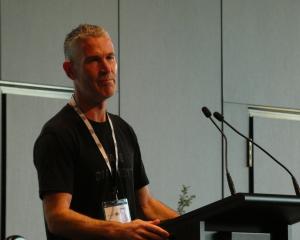
It had been created from ''the best of'' two Ministry for Primary Industries (MPI) investment programmes - the Sustainable Farming Fund and the Primary Growth Partnership, Mr O'Connor said in a statement.
When he was previously in opposition and Labour's primary industries spokesman, Mr O'Connor was a vocal opponent of primary growth partnerships (PGP) and, in late November, he called for a review of the PGP.
Yesterday, Mr O'Connor said SFF Futures - which had a budget of $40 million a year - would provide a single gateway for farmers and growers to apply for investment in a greater range of projects that delivered economic, environmental and social benefits that flowed through to all New Zealanders.
''The food and fibre industries are the backbone of New Zealand's economy, delivering more than $42billion in export revenue last year, and the ... Government wants to help extract more value from what they already do, in a sustainable way that means our natural resources will be there for future generations.
''Targeted funding rounds may include projects focusing on specific outcomes, such as climate change or the environment,'' he said.
Mr O'Connor made the announcement on a Morrinsville farm, alongside the launch of a project to tap into the New Zealand goat milk infant formula industry, which he said was the type of SFF Futures programme being sought.
Caprine Innovations NZ was a five-year, $29.65million PGP programme between MPI and Dairy Goat Co-operative (NZ) Ltd.
The programme aimed to strengthen the position of goat's milk infant formula as the preferred alternative to conventional milk infant formula, Dairy Goat Co-operative chief executive David Hemara said.
One of the goals was to increase export revenue across the New Zealand dairy goat industry to $400million per annum by 2023.
The programme was one of nine business cases for new PGP programmes ''in the pipeline'' before the announcement of the independent review of the PGP.
Existing PGG and SFF programmes would continue to their completion, while proposals in the pipeline would continue to be progressed under the original criteria.
SFF Futures applications were expected to have a greater focus on demonstrating or delivering economic, social, cultural and environmental benefits, prioritising product value over volume, and incorporating and encouraging collaboration and greater information sharing.













